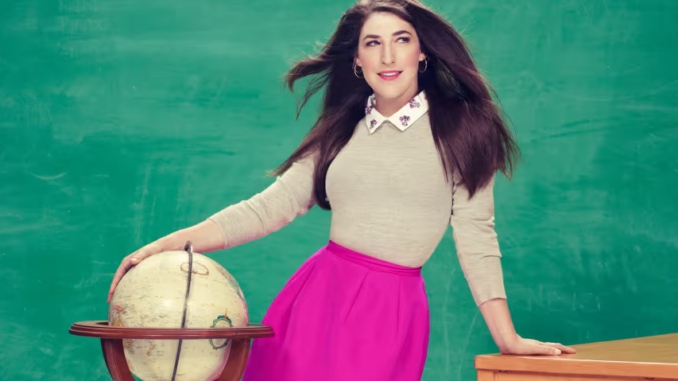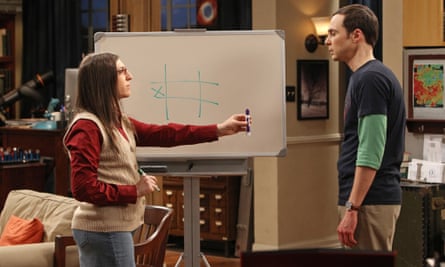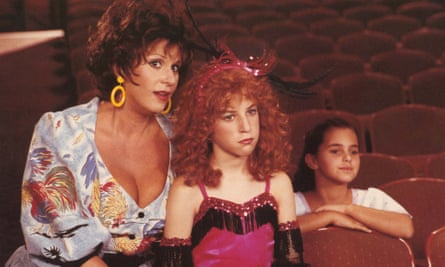
The neuroscientist and sitcom actor on science role models, Richard Dawkins and vaccination
You were in the hugely successful TV show Blossom in the 1990s. What inspired you to leave acting and take a degree in neuroscience?
When I was on the set of Blossom I had a biology tutor who was at that time a dental student at UCLA. She was the first person I ever met who was a one-on-one female role model for me and I fell in love with science and wanted to pursue it. I am a second-generation American so I come from a family where college is really emphasised and I really just wanted to go – when Blossom ended, that’s exactly what I did.
You also did a PhD – why?
I really loved teaching and research. I didn’t have the grades to go to medical school and in retrospect I think I would have been unhappy in the structure of medical school. I had my first son in grad school and my second son right after I got my PhD.
What was your research on?
Obsessive compulsive disorder in a population of individuals with a genetic syndrome called Prader-Willi syndrome.
Did you enjoy it?
Yeh, both of my parents were teachers so I was raised with a definite appreciation for teaching. Being a research professor seemed like what I wanted to do. But once I had my first child I realised how much time I wanted to be with him.
There’s been a lot of discussion about the “leaky pipeline” of women in science – how can we solve it?
That’s a larger question for people other than me; I’m not an anthropologist or a sociologist. But that’s part of why I do the work I do with Texas Instruments [as a brand spokesperson] – to try and encourage young people at an early age to sort of prepare for what a career might look like, which we would hope would involve the ability for them to have more confidence and more resources. I think women do need a lot more resources especially as we get to the age when we want to start families and things; those are things that even though men have to make those decisions it is very different for women because we are the ones whose bodies literally have to stop and make it happen.
Are you still keeping an eye on developments in neuroscience?
No, that’s a full time job! [Laughs]
Your character in The Big Bang Theory, Amy Farrah Fowler, has a PhD in neurobiology – how similar are you to her?
She was written as a female version of Jim Parsons’s character [Sheldon Cooper, Amy’s love interest]. There are things she and I are similar in, the way we approach thinking and our appreciation for science, but she is pretty much a character.
So you’ve never written Little House on the Prairie fan fiction like Amy?
No, no never!

Do you feel that you – and your character – are role models?
Yeah. The Bernadette character on The Big Bang Theory is a microbiologist so I am proud that on our show we have two different kinds of women: one wears pretty dresses and gets to have pretty things in her hair and one is the Amy character who’s a lot more simple. Both are versions of scientists so, yeah, I think it is tremendous.
How are scientists viewed in Hollywood?
A lot of people believe in [the] stereotype, but we hope that The Big Bang Theory is changing the way people think of nerds and geeks by showing them having active social lives and relationships. I think that is an important way to portray them.
How important is it to get the science right on The Big Bang Theory?
We actually have a physics consultant, Dr David Saltzberg. He is from UCLA and he’s the one who is in charge of all that. It is very important for our show and for our producers that we do that. A lot of our writers have science backgrounds and everything is Google-able so a lot of their stuff comes from the internet too. All of our writers are really bright.
How have you seen Amy change over the series?
[When] she started out, she was really socially awkward and really craving some sort of social outlet and she found that with Penny and Bernadette. So now she has a lot more social confidence and I think that has shifted her relationship with Sheldon too
Amy meets Sheldon through a dating website – do you find it surprising that so many people say they met online?
I guess it is kind of inevitable: the internet has taken over every part of our lives so why not dating as well I guess?
You’ve been a blogger for several years – what’s the appeal?
I think when I was a young mum a lot of mums were starting to write about their experiences and I wrote for a website called Kveller that really sought to bring a very honest voice to parenting, specifically Jewish parenting but we covered all types. It sort of grew and grew and I’ve now launched my own website called GrokNation where I am able to write about a wider variety of topics and hopefully reach more people including more of The Big Bang Theory audience.
Who, or what, is a Grok?!
It’s a term from a 1961 science fiction novel, Stranger in a Strange Land, and to Grok something means to understand something very, very, very deeply, like from all angles. And it is a deeper kind of understanding than simply the word “understanding” conveys.
Do you ever worry about sharing too much online?
The things I choose to write that are personal I weigh very, very carefully. And I choose things I hope will be educational or helpful to others. I don’t write a lot about my kids and have an agreement with them that I won’t write about anything that they don’t want written about them.
You mention you’re a vegan.
When it started I had a dairy allergy and once I cut out dairy I stopped getting sinus infections. So that was initially a health decision. But as I learned more and more about veganism and the way food is prepared and served it became more and more of an environmental and ethical decision.
Should we all give up meat for the environment?
No, I think that we should be absolutely doing what every medical organisation recommends, which is that we all cut back on processed foods and animal products. So I don’t think you have to make a choice to be vegan tomorrow. I don’t think it has to be that kind of decision. But everyone would benefit from cutting back on animal products and animal by-products – there’s nothing bad that will come of even making small changes in the amount that you eat.
You’ve landed in some controversy over vaccination, when you were quoted as saying: “We are a non-vaccinating family.”
I didn’t say that. At the time my book was written, my children did not have vaccines. And I also said I am not a doctor and I make no recommendations about what people should do.

But now they are vaccinated?
Now they are. I issued that statement on Facebook. They were a ton of fascinating rumours that “I don’t believe in vaccines”, “I don’t believe they work”. I never said that.
You’ve posted about the fact that you are both religious and into science. How do you feel about Richard Dawkins?
I respect him very much, and actually I agree with a lot of what he says. Religion is a very personal decision,there is not a one size fits all, and I think that the more ways we can find that we agree the better off we’ll be. Sam Harris is another example – Sam Harris and I were in graduate school together – he is a very, very prominent, outspoken atheist and there’s a lot that he and I actually agree on so I think it’s important to find similarities, not just differences. And ultimately the kind of religious fanaticism that we see in the world is not something any religious person I know would want.
Are you a fan of tech? I hear you’ve got an old school TV and big-buttoned phone in your Big Bang dressing room.
I’m not a huge fan of technology. I use it where it is necessary for work, but other than that I can’t even work an iPad.
